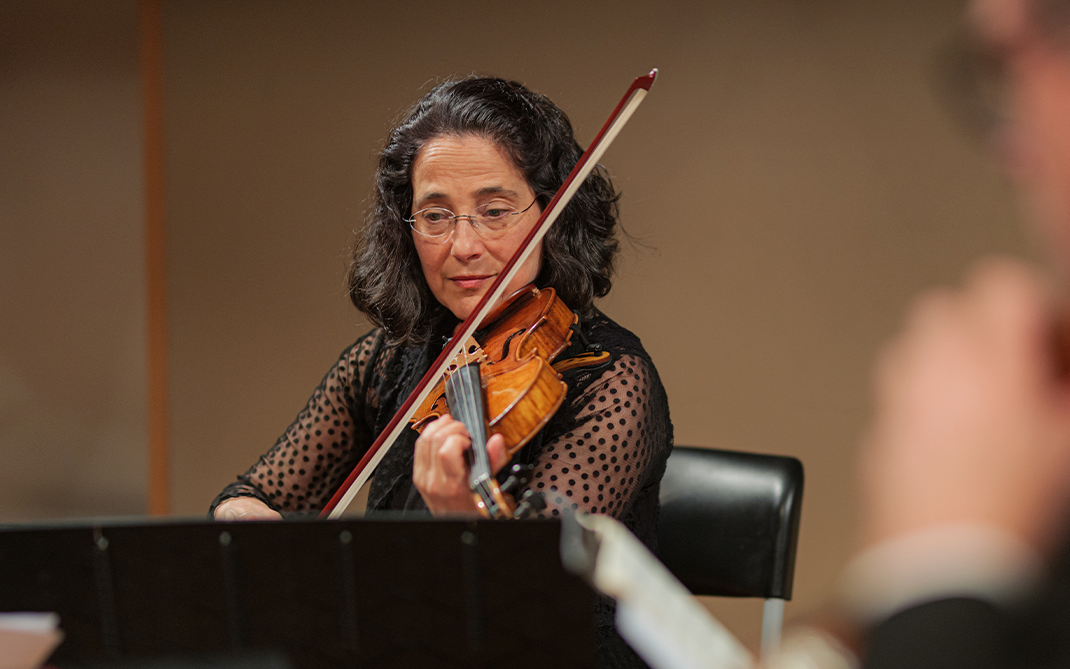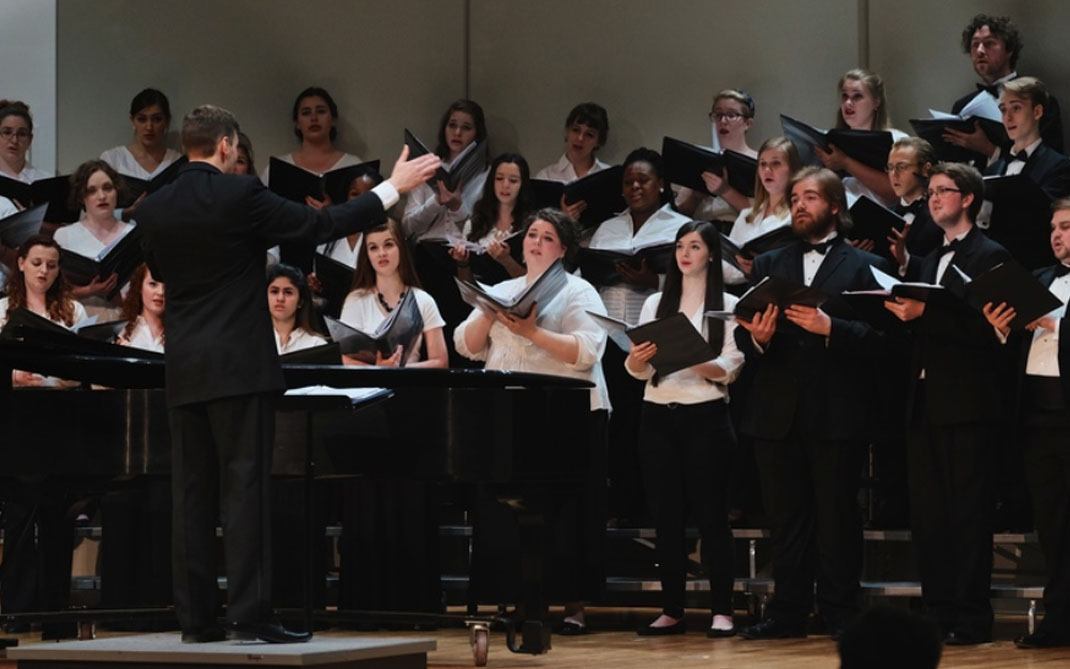Grievance (SAAO-II and other EHRA) Policy 614
| Policy 614 | Approved: February 17, 2011 |
| UNIVERSITY OF NORTH CAROLINA SCHOOL OF THE ARTS Grievance (SAAO-II and other EHRA) Policy Policy 614 |
|
| Source of Authority: | UNC Code § 611; UNC Policy Manual § 300.1.1 |
| Revision Authority: | Board of Trustees |
| History: | First Issued: February 17, 2011 |
| Related Policies and Regulations: |
UNC Code § 611; |
| Responsible Offices: | Chancellor Human Resources Department |
| Effective Date: | February 17, 2011 |
I. Purpose
The University of North Carolina School of the Arts (“UNCSA”) encourages employees to bring forward concerns about work related issues in a constructive and orderly way. Employees should actively seek resolution of grievances within their work units by initiating discussions of their concerns with their immediate supervisors within reasonable time frames. Should direct communication between an employee and the supervisor not produce a resolution of an employee’s concerns, the employee has available a formal grievance procedure designed to provide a fair review of the matter and to stimulate recommendations for the resolution of the grievance.
II. Scope
This policy covers all UNCSA employees designated as Senior Academic and Administrative Officers – Tier II (“SAAO-II”) and other EHRA employees not otherwise categorized. This Policy does not apply to SHRA employees, faculty members, SAAO-I employees, and UNCSA students who are employed incident to their status as students, as in graduate teaching assistantships or work-study positions.
III. Definitions
A. “Covered Employee” means either an individual employed by UNCSA as an SAAO-II or as an Other EHRA Employee as defined by this policy.
B. “Covered Position” means the employment position held by a covered employee.
C. “Day” means any day except Saturday, Sunday, or an institutional holiday. The day in which a notice is received is not counted, but the last day of the period is to be counted.
D. “Other EHRA Employees” means employees not subject to the State Personnel Act and are not otherwise categorized (e.g. SAAO-I or SAAO-II).
E. “Senior Academic and Administrative Officer – Tier II” or “SAAO-II” means an employee subject to the provisions of Section III of the Board of Governors policy on Senior Academic and Administrative Officers (i.e. UNC Policy Manual § 300.1.1). These positions include associate and assistant vice chancellors; associate and assistant deans; and other administrative positions at UNCSA.
IV. Policy
A. Generally
1. Any covered employee may obtain review of a discharge for cause or other disciplinary action by filing a grievance (also known as a petition for review) with the EHRA Non-Faculty Appeals Committee in writing.
2. Before filing the grievance, the employee must attempt, to resolve the matter with his supervisor.
3. The employee may only file a grievance on the basis of a prior written statement.
4. The employee, by filing a grievance or petition for review, represents that he or she can support the contention and agrees that UNCSA may offer in rebuttal of the contention any relevant data. .
B. Grounds for Review. A covered employee may seek review of personnel actions based on allegations that:
1. the covered employee was not provided appropriate notice when advance notice of discontinuation of employment is required;
2. the personnel action violated the Equal Employment Opportunity and Protected Activity provisions of UNCSA’s SAAO-II & Other EHRA Administrative Employees Policy;
3. the discharge for cause or other disciplinary action was illegal or violated Board of Governors policy; OR
4. the interpretation and application of a policy provision was illegal or violated Board of Governors policy.
C. Time Limits & Procedural Requirements. For information concerning time limitations and procedural requirements, the employee should consult this policy’s procedures.
D. EHRA Non-Faculty Appeals Committee
1. The Chancellor will appoint a five-member EHRA Non-Faculty Appeals Committee (the “committee”), the majority of who will be covered employees, and will name the chair of the committee. The committee will also include at least one SAAO-I.
2. If the membership of the committee is for any reason inappropriate in a particular case in the judgment of the chair, the chair may recommend some change in membership to ensure objective and timely review in that case. The Chancellor may add or subtract members in response to this recommendation on a temporary basis.
3. A committee member may not participate in the review of an appeal he or she brings on his or her own behalf or in any case in which he or she has been involved.
4. The committee may submit suggestions to the Chancellor regarding revisions to this policy and its associated procedures. Any revisions must be formalized according to UNCSA’s Statement on Policies.
5. It is the responsibility of the committee to evaluate petitions, consider the evidence, and where warranted, conduct hearings and advise the Chancellor on appeals of the kind mentioned herein.
6. The Chancellor may, at his or her discretion, ask the EHRA Non-Faculty Appeals Committee to serve as a general grievance committee in instances when covered employees seek the review of possible grievances that are not covered in these Policies.
E. Hearing Requirements
1. The Committee shall consider only the evidence presented at the hearing and such written or oral arguments as it may allow at its discretion.
2. The employee or former employee has the burden of proof.
3. In evaluating the evidence, the committee shall use the standard of preponderance of the evidence (which is the same as the “greater weight of the evidence.”).
F. Appeal to the Board of Trustees.
1. The employee may appeal the Chancellor’s decision to the Board of Trustees if the Chancellor either declines to accept the committee’s recommendation that is favorable to the employee or concurs in a committee recommendation that is unfavorable to the employee.
2. The decision of the Board of Trustees will be final.
V. Revision History
A. February 17, 2011 – Adopted by Board of Trustees as part of UNCSA Policy Manual
UNIVERSITY OF NORTH CAROLINA SCHOOL OF THE ARTS
Grievance (SAAO-II & Other EHRA) Procedures
Procedure 614
I. Procedures for Grievances Concerning Interpretation and Application of Any Provision of the SAAO-II & Other EHRA Employees Policy Other than for Discharge for Cause
A. The covered employee must file a notice of appeal with the chair of the EHRA Non-Faculty Appeals Committee (the “committee”) within 30 days of the incident giving rise to the incident and the employee has been unable to seek redress through informal means.
B. The notice of appeal shall explain the circumstance that led to and justify the grievance, but may not exceed four pages in length except under exceptional circumstance.
C. The committee shall decide whether the facts merit a detailed investigation.
1. If the committee determines that the alleged violations, if true, constitute violations of UNC or UNCSA policy within the jurisdiction of the committee, then a hearing must be held to give the petitioner an opportunity to prove his or her allegations.
2. If the committee determines that the allegations, even if proven true, would not constitute a violation of applicable notice requirements or a violation of UNC or UNCSA policy within the jurisdiction of the committee, there would be no basis for proceeding with a formal hearing.
D. The hearing will be conducted as directed by the chair of the committee, guided by the sole purpose of providing a fair, balanced and dispassionate hearing.
E. Prior to conducting the hearing, the chair of the committee is empowered to review the appeal in the manner that seems most expedient, including the delegation of responsibilities to one or more members or subcommittees of the Committee. These delegated responsibilities may include hearing representations by the persons directly involved in the grievances, by encouraging voluntary adjustment by the employee and the department head or administrative official directly involved. Once a hearing begins, the Committee’s role in encouraging voluntary adjustments normally will conclude, thus giving way to the formal review process.
F. After a hearing, the committee’s findings, opinions, and recommendations will be written and delivered to the Chancellor with a copy to the grievant normally within 30 days after receipt of the petition for review. Additional time may be requested by the Chair from the Chancellor as needed.
G. The Chancellor’s decision upon receipt of the committee’s recommendations is final, except in the event of appeal to the Board of Trustees.
II. Procedures for Grievance Concerning Discharge for Cause
A. The employee will have ten (10) days in which to make a brief written statement explaining the grievance and requesting a review.
B. The request for review will be submitted to the chair with a copy to the Chancellor.”
C. If within ten (10) days after the employee receives the notice of intent to discharge, the employee makes no written statement explaining the grievance and request for review, he or she may be discharged without recourse to any further institutional procedure by a written letter of discharge from the senior administrative officer responsible to the Chancellor in the functional area.
D. If the employee makes a written request within ten days for a hearing, the chair shall schedule a hearing before the Committee.
E. The Committee shall give the employee ten (10) days from the time it receives the written request for a hearing to prepare his or her defense. The Committee may, upon the employee’s written request and for good cause, extend this time by written notice to the employee.
F. Hearing Procedures
1. The hearing shall be based upon the employee’s written statement explaining the grievance.
2. The hearing shall be closed to the public unless the employee and the Committee agree that it may be open.
3. The employee shall have the right to have an advisor who is not an attorney, to present the testimony of witnesses and other evidence, to confront and question witnesses, and to examine all documents and other demonstrative evidence.
4. The Chancellor will designate someone to serve as the University’s representative who is not the General Counsel, to present the testimony of witnesses and other evidence, to confront and question witnesses, and to examine all documents and other demonstrative evidence.
G. A court reporter will record the proceedings, and UNCSA will furnish a copy to the grievant at UNCSA’s expense.
H. In reaching decisions on which its written recommendations to the Chancellor shall be based, the Committee shall consider only the written and oral testimony it permits to be presented at the hearing.
I. The Committee shall make its written recommendations to the Chancellor within (10) days after its hearing concludes.
J. The Chancellor’s decision upon receipt of the committee’s recommendations is final, except in the event of appeal to the Board of Trustees.
III. Appeals to the Board of Trustees pursuant to the UNC Code
A. If the chancellor concurs in a recommendation of the committee that is favorable to the employee, the chancellor’s decision shall be final.
B. If the Chancellor either declines to accept a committee recommendation that is favorable to the employee or concurs in a committee recommendation that is unfavorable to the employee, the employee may appeal within 14 calendar days after receiving the chancellor’s written decision.
C. An appeal is commenced by filing with the Chancellor (for transmission to the Board of Trustees) a written notice of appeal, which must include a brief statement of the basis for the appeal, including the actual grounds established by the related policy.
D. The notice of appeal must be transmitted to the Chancellor by certified mail, return receipt requested, or by another means that provides proof of delivery.
E. The decision of the Board of Trustees is final with no further appeal.





